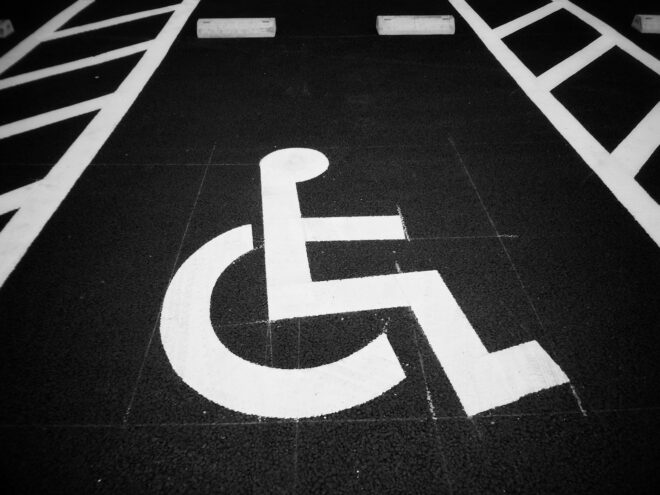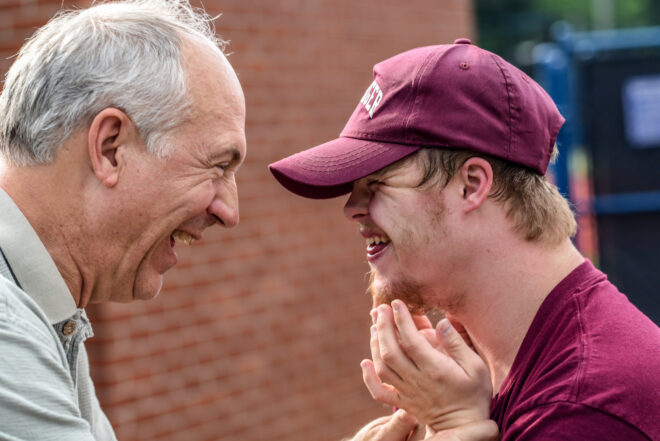Terms, Conditions & ADA: 3 Things B&B Owners Should Know
 You may know about the Americans with Disabilities Act (ADA), but do you know what that means for your bed and breakfast?
You may know about the Americans with Disabilities Act (ADA), but do you know what that means for your bed and breakfast?
The ADA protects people with disabilities from discrimination and, in order to comply with it, there are some things you should know.
In this article, we uncover the terms and conditions of the ADA, and three things B&B owners should know.
#1: Your Website Should Be Compliant
While by law your website doesn’t have to comply with the ADA, it still should for several reasons.
- You may end up in a lawsuit if your website is discriminatory against people with disabilities.
- It’s a good business practice and invites all users to freely use your website and book your B&B with ease.
So, how can you make sure your website complies with the ADA? Here is a list of everything you should do when designing a new website or refreshing your current site:
- Pay attention to color so people can recognize different areas of content.
- Include text captions with both video and audio content.
- Use alt text for all your images. This way, screen reader software can make it out and let visually impaired people know about the image.
- Don’t use flashing or strobing lights.
- Allow users to resize text.
- Use fonts that are easily readable.
- Don’t underline text unless it goes to a link.
- Use audio descriptions and captions for your videos so they are accessible. This way, people who are blind or who have low vision can learn about your videos. In addition, provide text captions so people who are deaf or hard of hearing can also watch your video with ease.
- Create your online forms with descriptive tags.
- Develop an action plan to stay on top of emerging digital trends.
#2: Your B&B Needs ADA Rooms
When the ADA was created, it set some accessible design requirements for lodging properties. These generally apply to the design of ADA hotel rooms. The standards apply to all hotels and lodging properties built or constructed after March 15, 2012.
It’s worth noting that the terms and conditions of the ADA don’t just apply to people who use wheelchairs. The ADA is designed to protect people of all abilities. (tweet this)
For example, you need to pay special attention to the accessibility of your bathrooms as well as entryway size, and anything that might affect hearing or sight-impaired people. Also, consider roll-in access for wheelchairs into showers.
You also need to equip your guest rooms for people who can’t see or hear very well. This includes audible and visible alarms and notifications for your guests so they know if they are getting a phone call or if there is someone at the door.
The size of your B&B also dictates how many ADA rooms you need. For example, if you have two to 25 rooms, you need one ADA room with an ADA bathtub. You also need one total mobility accessible room and two rooms with communication features.
Don’t forget to also pay special attention to the width of doorways, the turn radius, and accessible pathways so your B&B is easily accessible to all.
In addition, your ADA rooms need to pay attention to the height of the beds. People with limited mobility must be able to move from their beds to their wheelchairs with ease.

#3: Reservations for ADA Rooms
You want to hold all your accessible rooms for people with disabilities. Book your other rooms first, and make sure you keep accessible rooms open.
Whether you offer an online booking system or people have to call you, it’s important to follow up and make sure that people who need disability accommodation are in the right rooms.
It’s also a good idea to offer online reservations for accessible rooms as well as non-accessible rooms. This lets your guests know you value them all. In addition, go above and beyond with customer service and do your best to describe your hotel rooms in great detail.
For example, note if the room is wheelchair friendly, if the shower can hold a wheelchair, if the bed is a special height, and if you offer communication features.
Finally, you cannot charge extra for special ADA rooms.
Final Thoughts on Your B&B and the American with Disabilities Act
Hotels, inns, and yes, bed and breakfasts, are considered places of public accommodation. Therefore, they fall under the ADA. We’ve touched on some of the legal requirements in this article, but here are some other things to consider.
B&Bs with more than six rooms or more fall under the Americans with Disabilities Act and must be compliant. Yet, if you have five or fewer reservable rooms and you live on the property, you are not considered a place of public accommodation, so you aren’t covered by the ADA.
So, if you fall into the six rooms or more, it’s important that you pay special attention to any ADA terms and conditions. This is not only required by law, but it’s good business practice.
First, you don’t want someone to file a complaint against your property. Second, you want to create trust and loyalty among your lodgers. Create a B&B that follows the ADA, and you’ll notice that people are more likely to trust you and your property.
This, in turn, ensures you have a high customer retention rate, and you’ll have customers who become brand ambassadors because your B&B cares about its customers.
We are your hotel digital advertising specialists, and we can help you create your B&B website so that it complies with the ADA requirements. We will help you take your website to the top. Along with your website, we can create a winning social media marketing strategy that also ties back into your website. As website design and redesign experts, we can also create a new or refreshed website accessible to all. And we can also help with search engine marketing, online booking, online listings, and social media marketing. We are here to help. Contact us today for your consultation!
Image: Possessed Photography and Nathan Anderson on Unsplash
Free Hotel Website Checklist
5 Essential tips for using your website to book more guests! Plus, a Free email course, Winning Web Strategies For Innkeepers.